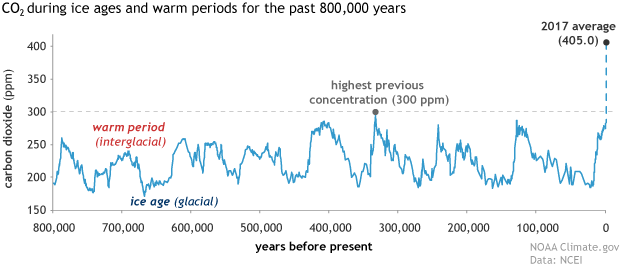As a progressive voter, I joined with many others in celebrating the terrific gains the Democratic party made in the US House elections. At last, there seems to be hope of cracking through the brittle political stalemate of the past several years. But I’m not really a party animal. I want to see progressive actions on many fronts, but there is one above all that demands our attention and action: We must act forcefully to put the brakes on climate change. Does that seem like more of the usual squawking of a climate-change chicken? It may seem so, but I am a scientist, not a chicken. Like all good scientists, I am committed to the notion that by working at it, we can come to know empirical truths. Not some Platonic notion of absolute truth, but a hard-won understanding grounded in experiment, observation, modeling—all that goes into testing and confirming hypotheses so thoroughly that we can bet our very lives on what we believe.
Consider the recent successful landing of Curiosity Rover on the planet Mars. What can we say about the kind of empirical truth that makes it possible to send Curiosity Rover to the planet Mars and receive gorgeous videos of its surroundings? To successfully bring off that amazing venture, the number of things that must be known, and the relationships between them is enormous. Because all that myriad of empirical truths exists, the whole—the marvelous achievement of launching an object from planet Earth to land successfully on a precisely chosen area of Mars, 96 million miles distant—is successful, a triumph of human intelligence.
On October 8, 2018, the Intergovernmental Panel on Climate Change issued a special report on limiting global warming to 1.5o. In the panel’s judgment, limiting global warming to 1.5o, as opposed to the presently set goal of 2.0o, would lessen some of the environmental impacts. The panel said, “With clear benefits to people and natural ecosystems, limiting global warming to 1.5o compared to 2.0o could go hand in hand with ensuring a more sustainable and equitable society”. So much that is important for many of the planet’s people is bound up in those words, but how many who read them will feel their importance? What it comes down to is that the vast majority of us who are not scientists must place our faith in what climate scientists tell us. Thousands of experts on climate-related matters from nations all over the world have contributed in ways large and small to the exceptional understanding we now have of Earth’s climate system. They’re warning us of what lies ahead because they believe collectively in the soundness of the overall assessments produced by the IPCC’s work. In this respect, they are like the thousands of scientists that made their individual contributions to the success of the Curiosity Rover mission.
The fate of the planet does not hinge on whether we choose to accept the soundness of the science that has gone into making the Curiosity Rover program the marvelous success it is. By contrast, it is simply a fact that if we don’t accept and act soon upon the advice of the IPCC, the planet will change in ways that will cause misery and eventual loss of human life on a scale never before seen. That sounds overly dramatic, but humanity is facing a rising climate change the likes of which has not occurred on Earth during the epoch in which human beings have evolved and come to “rule” the planet. We must keep this vital point in mind: It is true that the planet’s climate has changed immensely in past epochs, much more dramatically than we can expect that it will over the next few hundred years. But those changes came about when there were no human beings on the planet! We have to concentrate on the changes we can see coming in the very short run of decades, not thousands of years.
 We are the causative agents of the changes that are upon us. Detailed analysis of ice cores drawn from the Greenland and Antarctic ice show that the level of greenhouse gases in the atmosphere right now is far greater than it has been at any time during the past 800,000 years. Only our most vigorous and quick actions can forestall the worst effects of this, and we’ve got to halt further additions. We’ve come to take for granted the prowess of science in almost every aspect of our lives. Now we’re being told something we don’t especially want to hear. The fate of society depends on whether we pay attention and act.
We are the causative agents of the changes that are upon us. Detailed analysis of ice cores drawn from the Greenland and Antarctic ice show that the level of greenhouse gases in the atmosphere right now is far greater than it has been at any time during the past 800,000 years. Only our most vigorous and quick actions can forestall the worst effects of this, and we’ve got to halt further additions. We’ve come to take for granted the prowess of science in almost every aspect of our lives. Now we’re being told something we don’t especially want to hear. The fate of society depends on whether we pay attention and act.
One last thing: Some of you may have caught videos of the Town Hall Meeting that Bernie Sanders recently organized in Washington D.C.. You can find some of the materials on YouTube, but an interview of Senator Sanders by Naomi Klein is a good introduction. There will be more of these Town Hall meetings to come. I urge you to look for them.
No comments:
Post a Comment